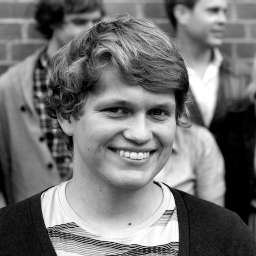What do you get when you mix an old man with a penchant for younger women, a young woman, her equally young lover and a scheming doctor, and set it all sometime around the 1960s, although you wouldn’t really know it had it not been for the petticoats? A rather successful night at the opera, it would seem.
The latest offering of the Norwegian National Opera’s 2012/13 season is Gaetano Donizetti’s last comedy, Don Pasquale. The story should be familiar enough to most: An old man – in this case the 70-year-old Don Pasquale – wants a wife in order to produce an heir. He enlists the help of the doctor Malatesta who has the perfect wife for him; his sister Sofronia, fresh out of the convent. However, this sister of Malatesta is in reality Norina, the lover of Pasquale’s nephew Ernesto. After Pasquale and “Sofronia’s” marriage, she becomes almost unbearable to live with. This is all a trick to make Pasquale agree to Norina and Ernesto’s marriage. And after a few ifs and buts, it all ends happily.
The production by François de Carpentries is set, as previously mentioned, sometime around the 1960s, although just exactly when is a bit trickier to discern. The general Konzept seems to be to set the opera during the societal changes of the 60s, although it doesn’t seem that anyone has minded to follow through with it. Which really isn’t a problem; in any case, it allowed for some creative costumes. In terms of the humour of this opera buffa, it’s mainly of the physical kind, with really no regard of any subtlety that may be lurking in the text. Considering the piece’s commedia dell’arte roots, this really isn’t such a bad idea.
Vocally the production was very strong indeed. Ketil Hugaas’ Pasquale was wonderfully characterised, with some exceptional patter. His sound was somewhat on the dry side, although this wasn’t entirely inappropriate for the old man. Toumas Katajala, the evening’s Ernesto, had a very bright, piercing sound that had a tendency at times to become a bit too nasal, although it got pleasant enough after a little while. He did do some fine singing; especially the Act I aria and the Act III serenade were lovely. But overall he proved slightly too undynamic, both in terms of his acting and his singing. Johannes Weisser’s Malatesta was the greatest performance of the evening, although the rest certainly weren’t far behind. He has a sizeable voice that tended to drown out the other singers in the ensembles. Still, he proved a charismatic performer and certainly charmed the audience with some very entertaining cadenzas. As with Hugaas, his patter was very good indeed.
Perhaps the most charming performer of the evening, however, was Eli Kristin Hanssveen’s Norina. She started out a bit shaky and fudged a few of the runs in her opening aria, but after that, there really was no stopping her. There were a few intonation problems along the way; most noticeably some high notes going flat, but other than that, it was a fine performance. Acting-wise she was perhaps the most physical of the cast, not bothering with the finer subtleties of the role (of which there are few) and generally going for the laughs with exaggerated facial expressions and wild gestures. It would have been nice to hear some more vocal variety to go with the acting.
Also worthy of much praise is the chorus, who both sang and acted wonderfully. Especially successful was the choreography to Ernesto’s third-act serenade (clad in Elvis-inspired livery, no less), although it would seem that some of the chorus members will have to look a bit more closely at the choreography. The orchestra also played admirably, with especially fine woodwind solos. However, conductor Patrick Fournillier had a tendency to get carried away and overpower the singers during the more excited moments.
This production of Don Pasquale might not be the performance to go to for big life questions and challenging subject matters. But it most certainly was an entertaining night at the opera. With strong performances from all involved, especially the singers, fun was had by all.


